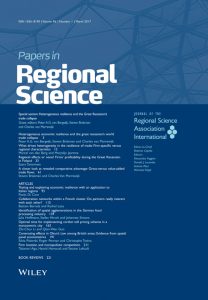Interview with Professor Byoung-Hoon Lee, Associate Editor for Sociology Compass
Sociology Compass is delighted to welcome Professor Byoung-Hoon Lee as our new Associate Editor for the Work, Organizations & Economics Section. Byoung-Hoon is Professor in the department of sociology, Chung-Ang University, South Korea. The Associate Editor role at Sociology Compass is to lead on the commissioning of state-of-the-art review articles under dedicated subject areas. We took the opportunity to talk Byoung-Hoon about his research background and aims for the work, organizations & economics section as he joins the Sociology Compass editorial team. Please tell us...







1467-7660/asset/DECH_right.gif?v=1&s=a8dee74c7ae152de95ab4f33ecaa1a00526b2bd2)
1468-0491/asset/society_affiliation_image.gif?v=1&s=859caf337f44d9bf73120debe8a7ad67751a0209)